Stakeholders push for Sustainable Public-Private Partnerships for Digital Agricultural Extension Solutions
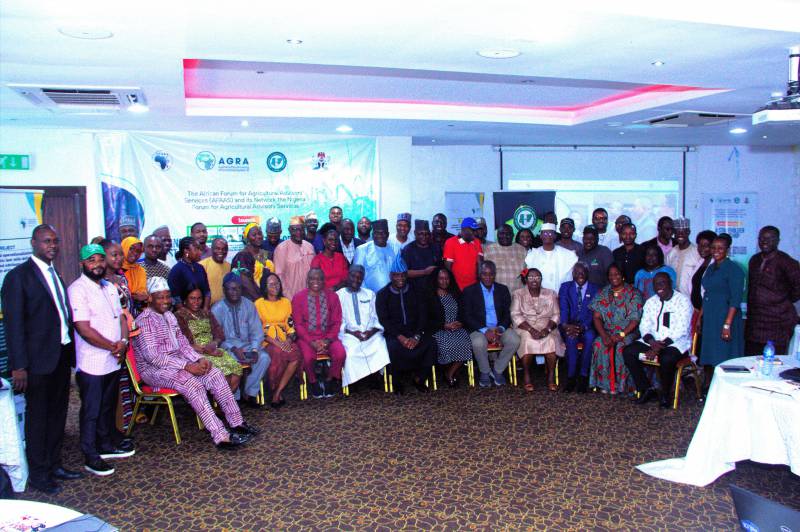
Key digital agricultural extension stakeholders in the public and private sectors have stressed the importance of developing a sustainable Public Private Partnership (PPP) business model for digital extension delivery solutions in Nigeria. The call was made at a stakeholder workshop organized by the Sasakawa Africa Association Nigeria on November 7, 2024, as part of the launching of a project tagged “A Consultative Engagement Exercise for a Product Profile Design for Nigeria’s Public-Private Partnership Digital Extension Delivery System”.
The project, funded by the Bill and Melinda Gates Foundation, is an engagement exercise and scoping study that will be conducted in Oyo, Gombe, and Kaduna States to identify and profile a digital extension delivery solution that addresses the specific needs of small-scale farmers while promoting gender equality, and enhancing climate resilience in crop and livestock value chains.
The project, being executed by the African Forum for Agricultural Advisory Services (AFAAS) in collaboration with SAA, AGRA, Sahel Consulting, and Africa Practice was launched at the stakeholder workshop with participants from the Ministry of Agriculture, government agricultural development programmes (ADPs), agro-allied companies, financial sector, tech firms, digital agricultural service providers, non-governmental organisations, donor-funded agricultural programmes and farmer organisations.
While declaring the workshop open, the Director, Federal Department of Agricultural Extension, Dr Adeola Lordbanjou, lamented that the traditional Training and Visit (T&V) extension approach had become ineffective hence the need for innovative approaches.
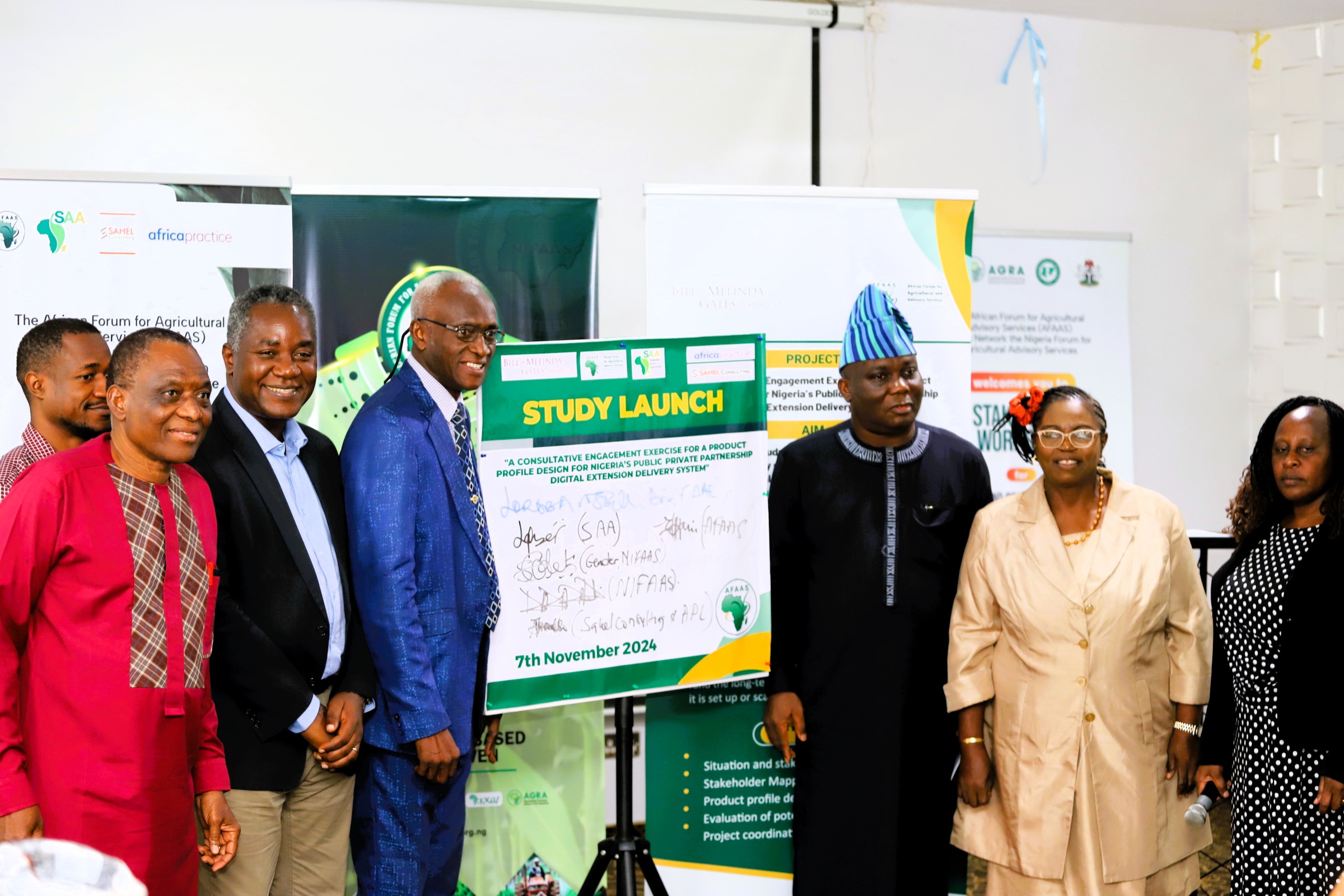 Group photo of partners taken shortly after the launch of the project, “A Consultative Engagement Exercise for a Product Profile Design for Nigeria’s Public-Private Partnership Digital Extension Delivery System”
Group photo of partners taken shortly after the launch of the project, “A Consultative Engagement Exercise for a Product Profile Design for Nigeria’s Public-Private Partnership Digital Extension Delivery System” “Nigeria currently has an insufficient number of extension agents in the system,” he said. “As against one extension agent to 500 farmers in the past, we now have one extension agent to 10,000 households. In addition to that, the T&V extension approach has become ineffective and inefficient. This extension challenge is a major contributor to the low productivity in our agricultural sector. To tackle this, last year, Nigeria launched its National Agricultural Extension Policy (NAEP), emphasizing ICT integration, thus paving the way for the promotion and use of digital technologies and services to serve farmers who do the noble job of feeding us and growing our economy. I therefore say that the project we are launching here today is a huge and bold step in the right direction.”
“Government recognizes the importance of the private sector, so working hand in hand in a PPP model is critical if we must revitalize and modernize our agricultural extension system,” Lordbanjou added.
In his introductory remarks, the Executive Director of AFAAS, Dr Silim Nahdy, stated that the project is the Gates Foundation’s commitment to supporting efforts aimed at increasing the availability, quality, and reach of digital solutions that benefit Small Scale Producers. He stressed the need to integrate and bundle the vast number of digital solutions for improved outcomes at the farmer level.
He explained that “the result of this project will help us identify a potential solution that can be delivered through a sustainable Public Private Partnership (PPP) business model, taking into consideration how SSPs will access the service and how it will create operational collaboration with the private sector, public sector, and non-profit delivery of extension services to farmers. In addition, determine the private sector’s willingness to collectively fund the long-term maintenance of the platform once it is set up or scale existing solutions.”
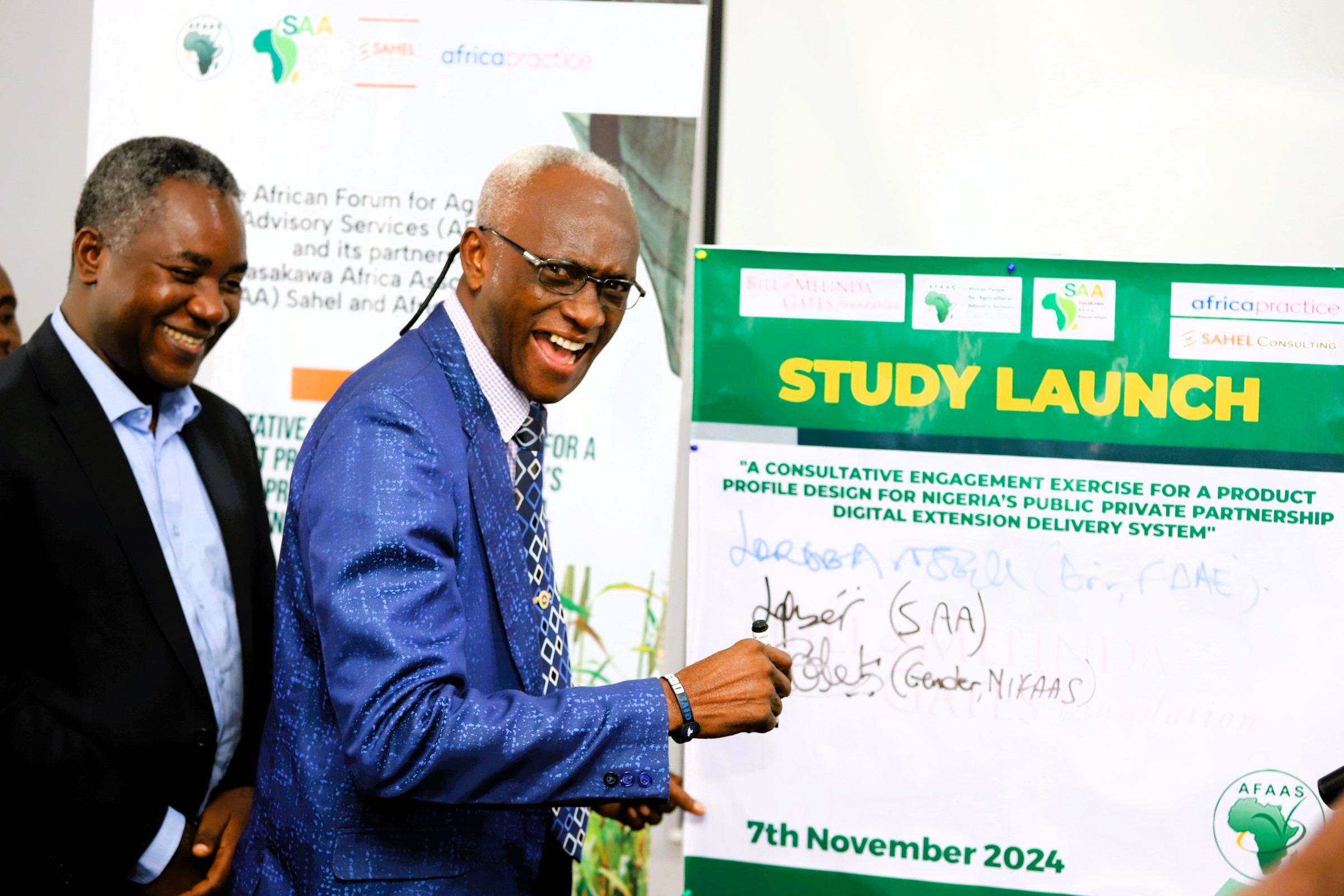 SAA Nigeria Country Director Dr Godwin Atser and Professor Tologbonse, former president of NIFAAS shortly after the project launch in Lagos Nigeria.
SAA Nigeria Country Director Dr Godwin Atser and Professor Tologbonse, former president of NIFAAS shortly after the project launch in Lagos Nigeria.As participants at the workshop assessed the needs, gap and SWOT analysis of PPP for digital advisory and extension services, Dr Godwin Atser, the Country Director of SAA Nigeria, which is leading the project’s first workstream, urged the players to avoid working in silos but collaborate for the collective aim of transforming Nigeria’s agricultural sector through digital solutions.
“Sasakawa is laying the foundation for the overall study” he explained. “We are working with experts to conduct conceptual, gaps and gender assessments that will enable a synthesis of the needs of small-scale producers from an advisory perspective and what incentivizes the private sector to invest in digital extension.”
Moses Nongoatse
Communication Officer,
Sasakawa Africa Association Nigeria.
For more information
Contact: Communication Officer, Sasakawa Africa Association- Nigeria
Abuja Office: No 19 Ogbomosho Street, Garki Area 8, Abuja, Nigeria
Kano Office: No.8 Kura Road, Off Magajin Rumfa Road, Nassarawa GRA PO Box 5190, Kano, Nigeria. Email: mnongoatse@saa-safe.org +234-806-65763542
SAA Publications
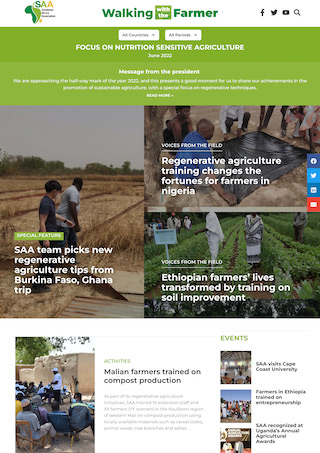
E-newsletter
"Walking with the Farmer"
SAA publishes a bimonthly e-newsletter reporting on SAA activities.
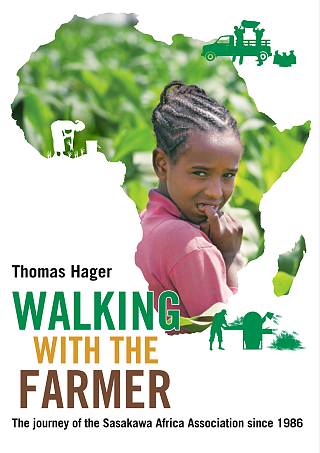
SAA history book
"Walking with the Farmer: The journey of the Sasakawa Africa Assoication since 1986"
This book chronicles the history of SAA from its inception to the present.

Annual Report
Annual Report FY2023
Annual Report FY2023 is available here.





